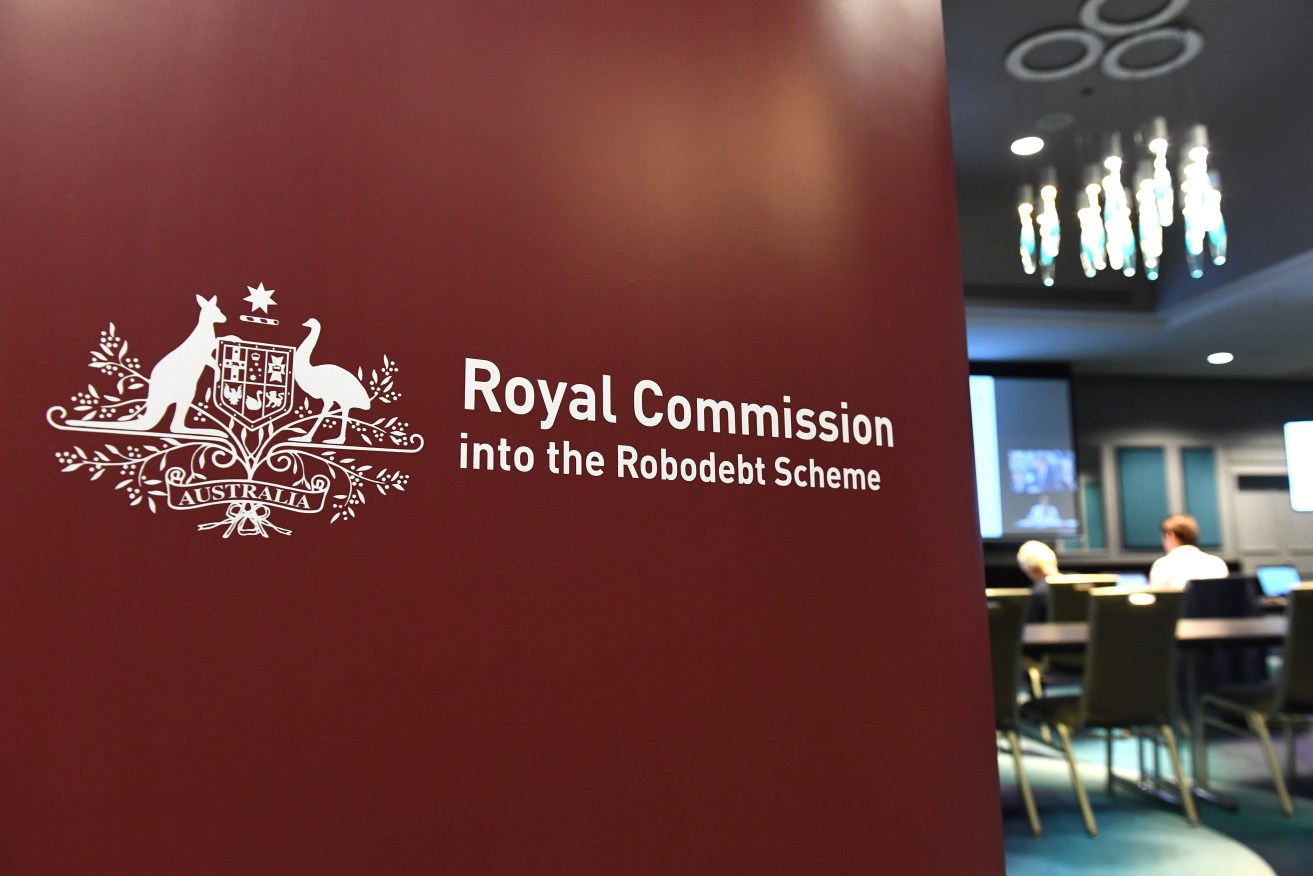Official never read key robodebt ruling

The final round of robodebt hearings is focusing on the inquiry by the ombudsman into the scheme. Photo: AAP
A senior official in charge of welfare payment appeals has admitted never reading a tribunal finding that controversial robodebts could not be legally enforced.
Elizabeth Bundy, who ran internal reviews for the Department of Human Services, appeared at the robodebt royal commission in Brisbane on Wednesday.
Ms Bundy was repeatedly questioned about a significant ruling from the Administrative Appeals Tribunal, which conducts independent reviews into decisions made under commonwealth law.
The tribunal found in 2017 that robodebts could not be legally enforced, ruling the process used to calculate the debts was inaccurate and unreliable.
Angus Scott, counsel assisting the royal commission, appeared taken aback that Ms Bundy had not read the ruling.
Mr Scott asked how she could do her job effectively without being familiar with the decision.
“As manager of the appeals branch … you had a duty to have regard to decisions of the AAT … are you saying you didn’t read this decision?” he said.
Ms Bundy said it was impossible to read all 13,000 decisions the tribunal made each year.
“It is not possible with a branch of 400 people to be reading every AAT decision,” she said.
The unlawful robodebt scheme involved using annual tax office data to calculate fortnightly earnings and automatically issue welfare debt notices.
The program wrongly recovered more than $750 million from 381,000 people and led to several people taking their lives while being pursued for false debts.
Ms Bundy was quizzed on her understanding of the legality of income averaging, admitting she hadn’t read legal advice issued in 2014 that said it would not be legal.
Despite admitting it was central to her job, Ms Bundy said she hadn’t read the advice as “it was an extremely busy time”.
“I’d made the assumption these things had been resolved,” she said.
Much of Wednesday’s evidence focused on the department’s understanding of using income averaging as a last resort.
Ms Bundy said the department used the process after two failed attempts to contact a welfare recipient.
Mr Scott said other avenues to gain the required information were available.
“It’s plainly not using averaging as a last resort, is it?” he said.
Ms Bundy said if no other information was in front of a decision-maker it was being used as a last resort.
“People’s understanding of what that meant could be different,” she said.
– AAP








